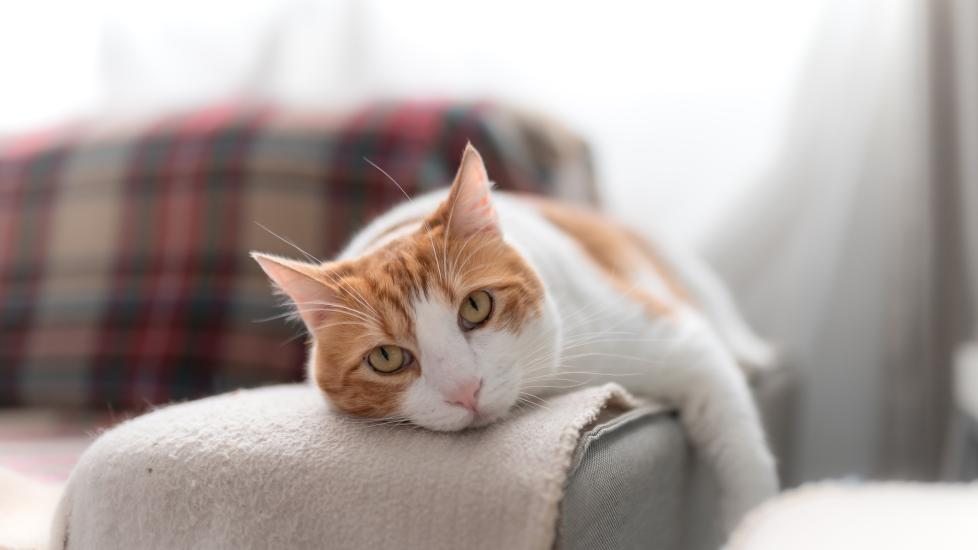 Living with a feline friend can be an absolute joy, but just like us humans, cats have their own unique ways of coping with stress. It’s crucial for pet owners to recognize the signs of stress in their furry companions to ensure they live happy and healthy lives. Here are eight telltale indications that your cat may be feeling anxious or stressed:
Living with a feline friend can be an absolute joy, but just like us humans, cats have their own unique ways of coping with stress. It’s crucial for pet owners to recognize the signs of stress in their furry companions to ensure they live happy and healthy lives. Here are eight telltale indications that your cat may be feeling anxious or stressed:
-
Changes in Appetite: A sudden increase or decrease in food intake could signal emotional distress. If you notice your cat eating more than usual, it might be because she is trying to soothe herself through comfort-eating. Conversely, if your usually voracious eater suddenly loses interest in her meals, this could also indicate anxiety.
-
Increased Grooming: Cats have a natural instinct to keep themselves clean, but excessive grooming can sometimes be a sign of stress. Overgrooming can lead to hair loss, skin irritation, and even psychological problems. Watch out for bald patches on your kitty’s body as this could be a result of compulsive grooming behavior.
-
Hiding Spots: While it’s normal for cats to hide occasionally, persistent hiding throughout the day suggests something isn’t right. They often seek solitude when under duress, so if your once social cat starts spending most of its time tucked away, it might be a cause for concern.
-
Urinating Outside the Litter Box: This is one of the most common behavioral issues associated with stressed cats. Changes in litter box location, type, or frequency of cleaning can all contribute to anxiety. Additionally, new pets or people in the household can trigger such behavior.
-
Panting: Rapid breathing or panting is not typical for cats, especially indoors where temperatures are regulated. Excessive heat aside, heavy breathing could be due to fear or nervousness. Keep an eye on your cat’s respiratory rate; rapid breaths could mean he’s feeling tense.
-
Aggression: Uncharacteristic aggression towards other pets or humans within the home could stem from feelings of unease. Your normally gentle cat might start hissing, swatting, or biting without provocation if she feels threatened by changes around her environment.
-
Vocalization: More meowing, yowling, or caterwauling than usual can be another indication of stress. Your chatty cat might be trying to communicate her discomfort or desire for things to return to how they were before the change occurred.
-
Changes in Sleep Patterns: Just like humans, cats need a good night’s rest to function properly. If your sleeping schedule has been disrupted lately, pay attention to whether your cat seems overly tired during the day or restless at night. These disruptions could point to underlying tension.
If you suspect your cat is experiencing stress, take action immediately. Consider consulting with a veterinarian who specializes in animal behavior, as they can provide valuable insights into managing your cat’s emotions effectively. Remember, every cat is different, and what works for one might not work for another. By being attentive to these signs and taking steps to reduce stressors in your cat’s life, you will help create a calm and loving environment that fosters happiness for both you and your beloved pet.
